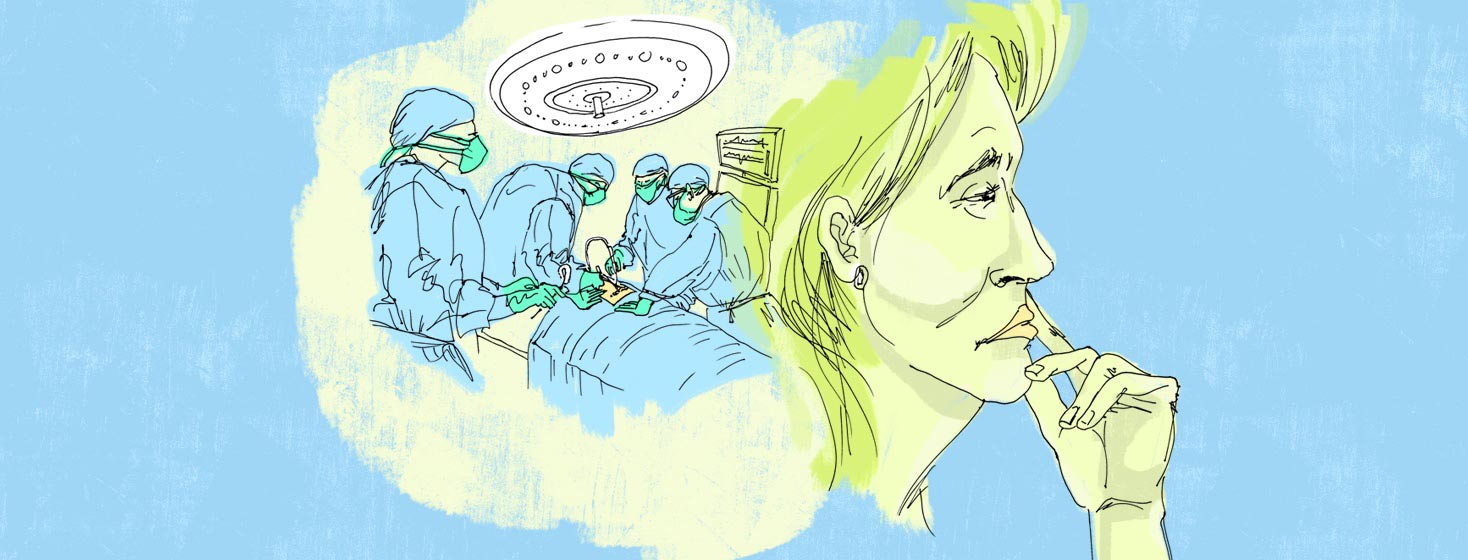Preparing for Thymectomy and Hospital Pandemic Restrictions
It has been 6 months since my thymectomy. Woohoo! The pain medications kept most of my time in the hospital a blur. Still, I remember having many frustrating disappointments. My thymectomy ordeal would have consisted of fewer surprises had there been more genuine patient recounts available to have read ahead.
I hope the following advice, reflecting the reality of my thymectomy experience during COVID-19, will aid a reader with myasthenia gravis (MG) in planning and thus have a better future hospital stay.
Confirm proper timelines
Surgeons may not supply patients with accurate timelines during an initial consultation. They may not have their schedules memorized in the back of their head. Attempt to get an accurate timeline from the scheduler’s mouth before leaving the appointment in person.
Have a flexible schedule before surgery
One scheduling error can spiral into multiple makeup appointments. It's incredibly frustrating when office schedulers are at fault. While COVID-19 is still present, COVID tests may get lost. Plan for the potential makeup test. Hospitals may also require patients to trek to outside centers for COVID tests, not conveniently permitting one to complete appointments and tests on the same day.
I recommend that all surgery patients, and those planning on helping them, balance their schedules as flexibly as possible for 2 weeks before surgery. Those living with myasthenia gravis (MG) will have to consider the potential effect of unexpected events on their MG symptoms. Become familiar with the free advocacy services available at hospitals. I wish I had been more assertive, stating my concerns and the actions I needed the hospital to take for my comfort!
Possible challenges
Without the help of a guest, any of the following scenarios may be possible:
Staff may assign an opposite gender and similar age nurse to aid with the restroom and dressing. They may not notify the patient that they can assist with changing clothes or self-care.
Nurses may hand the patient a morphine drip too soon after surgery without reminders of its use. It may be mistaken for a nurse call button until they become alert and notice the issue themselves.
Despite explaining MG weakness, staff may still leave the patient alone for too long. A patient with MG could fall on their bedpan if their legs get weak, spilling it on themselves. Likewise, they may fall over when their neck and legs become too weak using the commode.
After open chest surgery, it is typical to feel uncomfortable and require frequent readjusting. Nurses may take a few minutes to respond to a patient’s call for help. No one offering to help the patient eat or drink despite surgery pain and MG arm muscle weakness
Research hospital and surgeon reviews
Try analyzing hospital and surgeon reviews before surgery. Location, staff MG experience, doctor recommendation, and insurance may limit options. Deliberate if traveling farther is attainable, meaning the possibility of a more effortless and comfortable experience.
Finding help and support
Having a guest would make a vast difference during my thymectomy hospital stay. But, the pandemic did not permit it.
Depending on the location, it may become regular for hospitals to limit guests for a while. Even once the pandemic finally leaves us, throughout our life with MG and hospital stays, we may notice ourselves without the immediate help of a guest.
To feel comfortable and confident during future hospital ordeals, try reading the experiences of others who live with MG regularly. Sharing our stories and advice with others is an easy way to support others and supply wisdom from afar.

Join the conversation